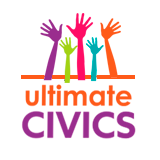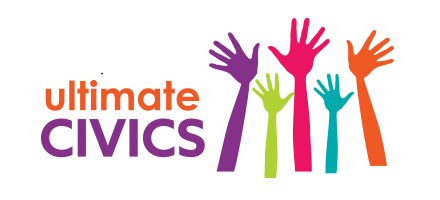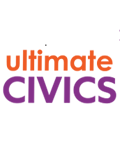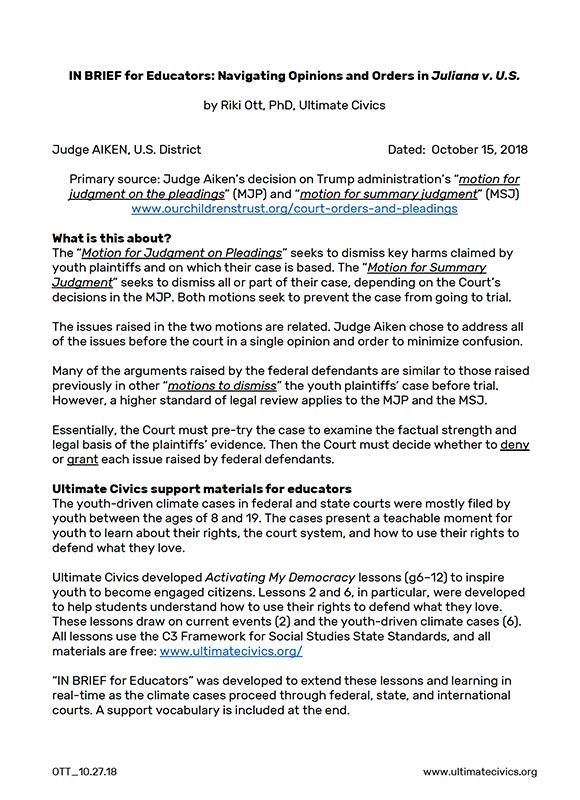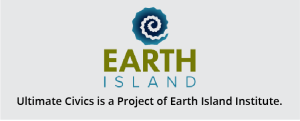Inspiring youth to engage in activating democracy and emerge as game changers
ACTIVATING MY DEMOCRACY
HIGH SCHOOL LESSONS
ACTIVATING MY DEMOCRACY
Download Courses
Download Courses
Curriculum Download Options
- Download the full set of lesson materials sets as zip files
- Each set includes a teacher’s guide, PowerPoint slides, worksheets, and other materials
- NEW! Watch instructional videos for each lesson to get an overview and learn how to teach them on our Youtube Channel
Downloading lessons? Please let us know who you are and your classroom stories through our contact page!
LESSON ONE / HIGH SCHOOL

What can we do?
How to move ideas into action
Students analyze and discuss film stories to identify basic elements of SMART action plans created and implemented by their peers. Peer learning and interactive exercises nurture self-efficacy and support the role of young citizens in creating a more sustainable and democratic society. (Time: 50 minutes)
LESSON TWO / HIGH SCHOOL
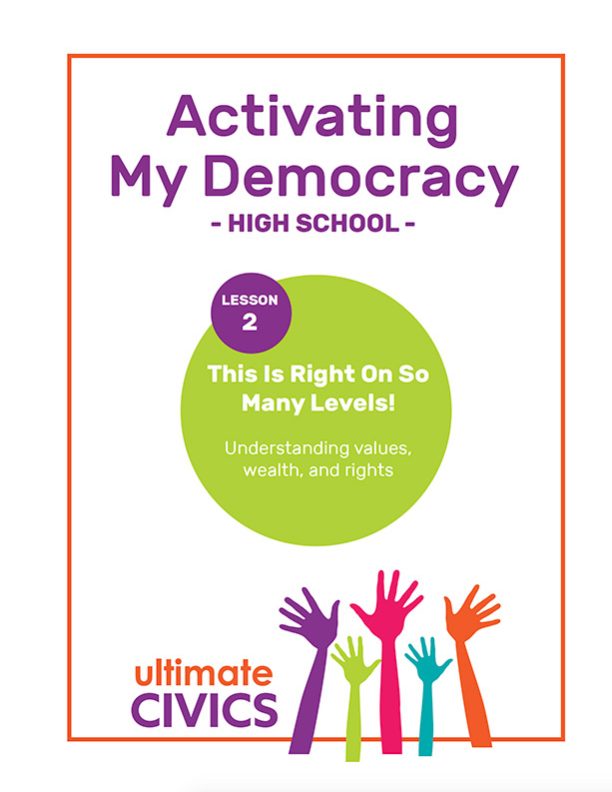
This is right on so many levels!
UNDERSTANDING VALUES, WEALTH, AND LIBERTIES
Students explore and articulate what they value, then examine how the value-based liberties and principles enshrined in the Declaration of Independence were moved into legal protections through the Bill of Rights. Using select current events, students learn how, and how well, our rights work to defend our wealth and wellbeing and to curb government abuse of power. (Time: 50 minutes)
LESSON THREE / HIGH SCHOOL
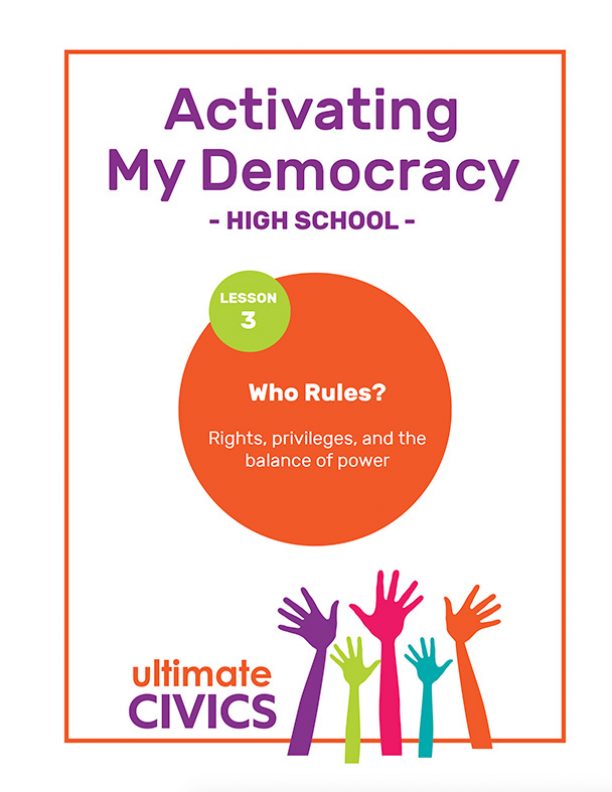
Lesson 3: Who Rules?
Rights, privileges, and the balance of power
Students critically examine the conceptual framework of the Constitution, Bill of Rights, and Civil War Amendments to understand how internal threats from fear of other and love of power were institutionalized in these documents. Students are introduced to a new threat created through judge-made law and the court’s role in shifting the balance of power during the first 100 years. (Time: 100 minutes)
LESSON FOUR / HIGH SCHOOL
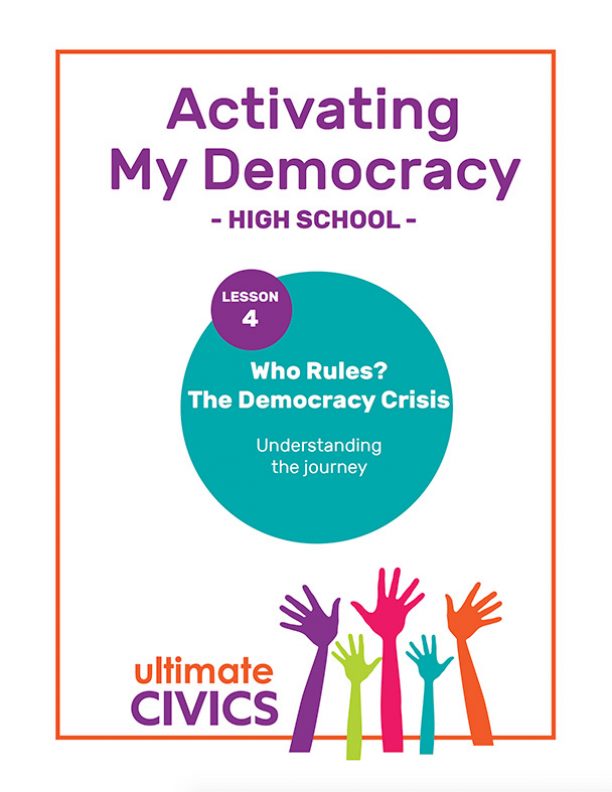
Lesson 4: Who rules?
The democracy crisis
Students continue to explore the democracy journey, starting with people’s movements for civil liberties and civil rights during the 1950s to 1970s. Students are introduced to the Powell Memo of 1971, the business community’s response to this perceived attack on the American free enterprise, and then explore the landmark laws and social consequences of the resulting strategic legal campaign, organized by the Monied Power, to influence public opinion and, hence, political campaign outcomes. Students summarize the democracy journey, creating their own narrative of who rules. (Time: 50 minutes)
L4 High School Full Curricula Zipped File | ZIP | 10MB [download]
LESSON FIVE / HIGH SCHOOL
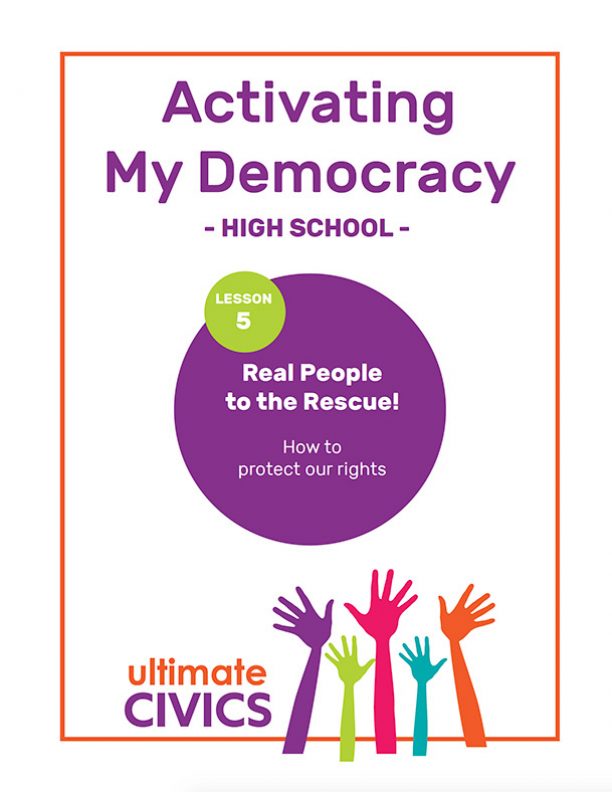
Lesson 5: Real people to the rescue
How to protect our liberties
Students explore reasons and ways to amend the Constitution to establish that only natural persons have natural and fundamental rights and that money is not speech. A film and interactive exercises help students understand and describe what a constitutional amendment could do, the social consequences with – and without – such an amendment, and how citizens can engage government in this process. (Time: 50 minutes)
L5 High School Full Curricula Zipped File | ZIP | 4.8MB [download]
LESSON SIX / HIGH SCHOOL

Lesson 6: Our future is a constitutional right!
How to use our rights to defend what we love
Students consider why people seek judicial relief and examine basic elements of a civil lawsuit, drawing on real examples from the youth-driven landmark climate cases in federal and state courts. Students explore: “standing” in a court of law; how protected classes and new rights are recognized; rights under the Public Trust Doctrine; and more. Students gain an understanding of how values, law, science, and politics interface when addressing complex public problems with multiple perspectives. (200 minutes)
WASHINGTON STATE ALIGNMENT DOCUMENTS
Based on C3 FRAMEWORK for Social Studies State Standards
Coming soon!
In Brief for Educators: Navigating Opinions and Orders in Juliana v. U.S.
The youth-driven climate cases in federal and state courts were mostly filed by youth between the ages of 8 and 19. The cases present a teachable moment for youth to learn about their rights, the court system, and how to use their rights to defend what they love. This In Brief for Educators was developed to extend Activating My Democracy lessons and learning in real-time as youth-led climate cases proceed through federal, state, and international courts. Support vocabulary is included at the end.
